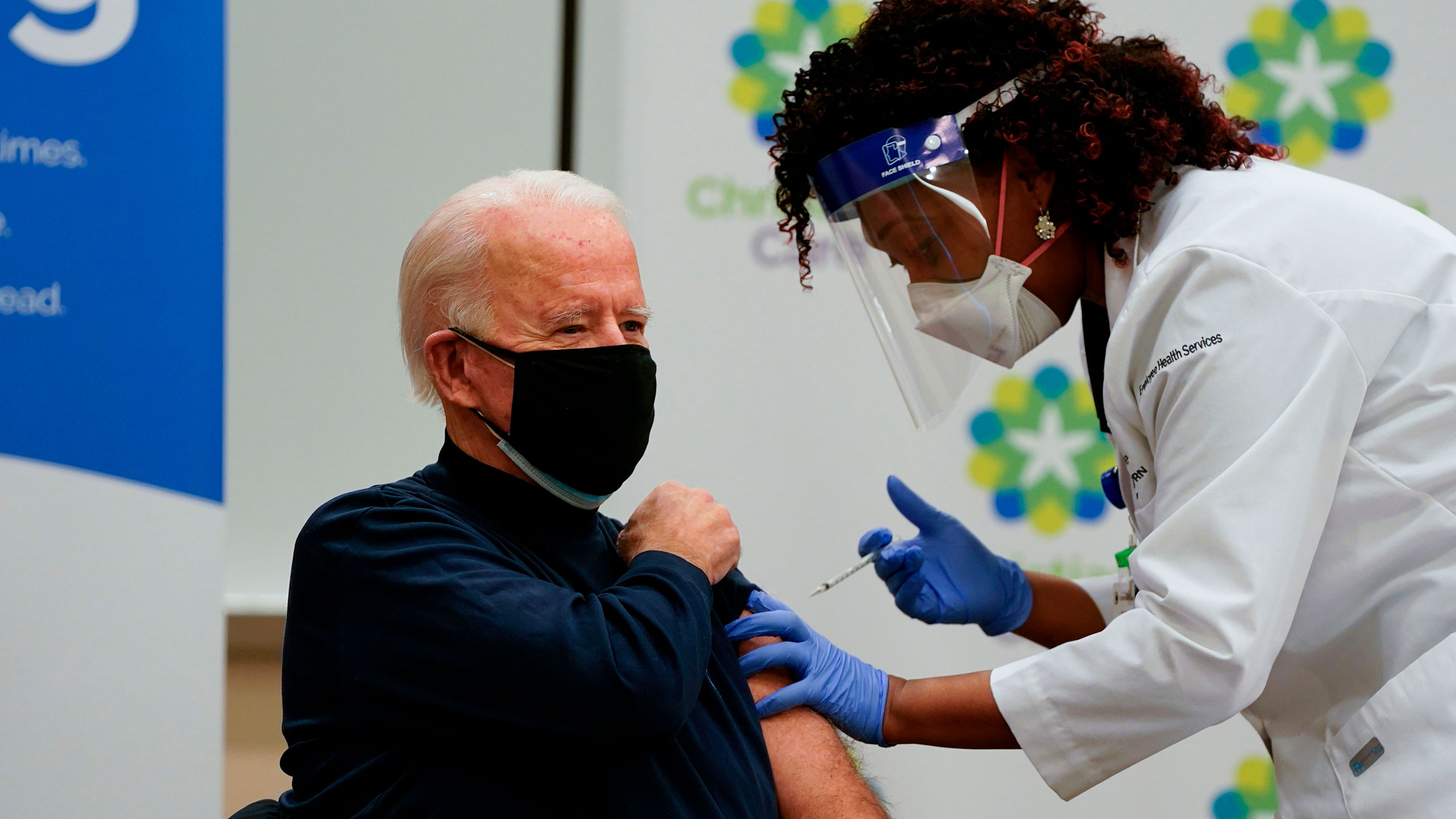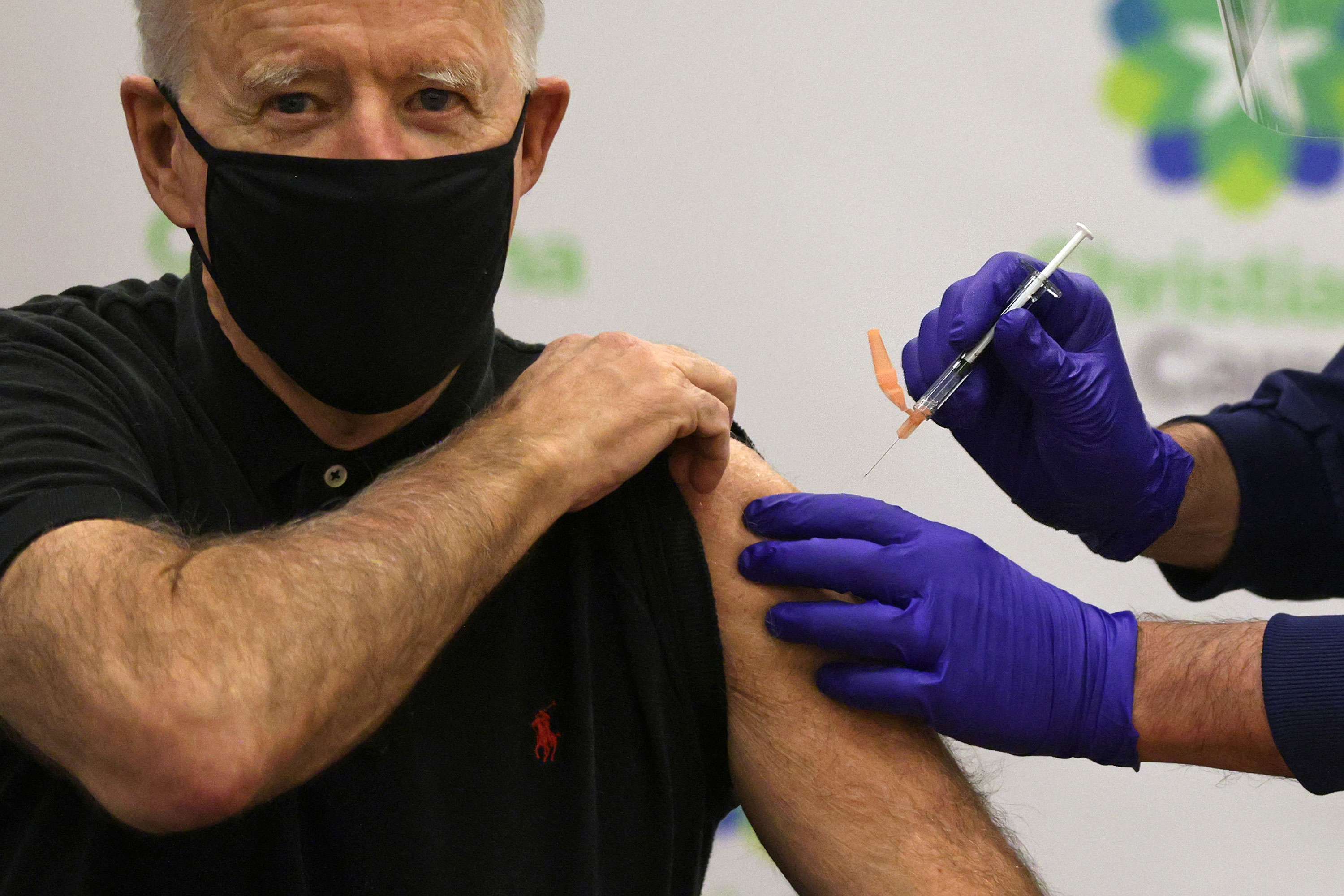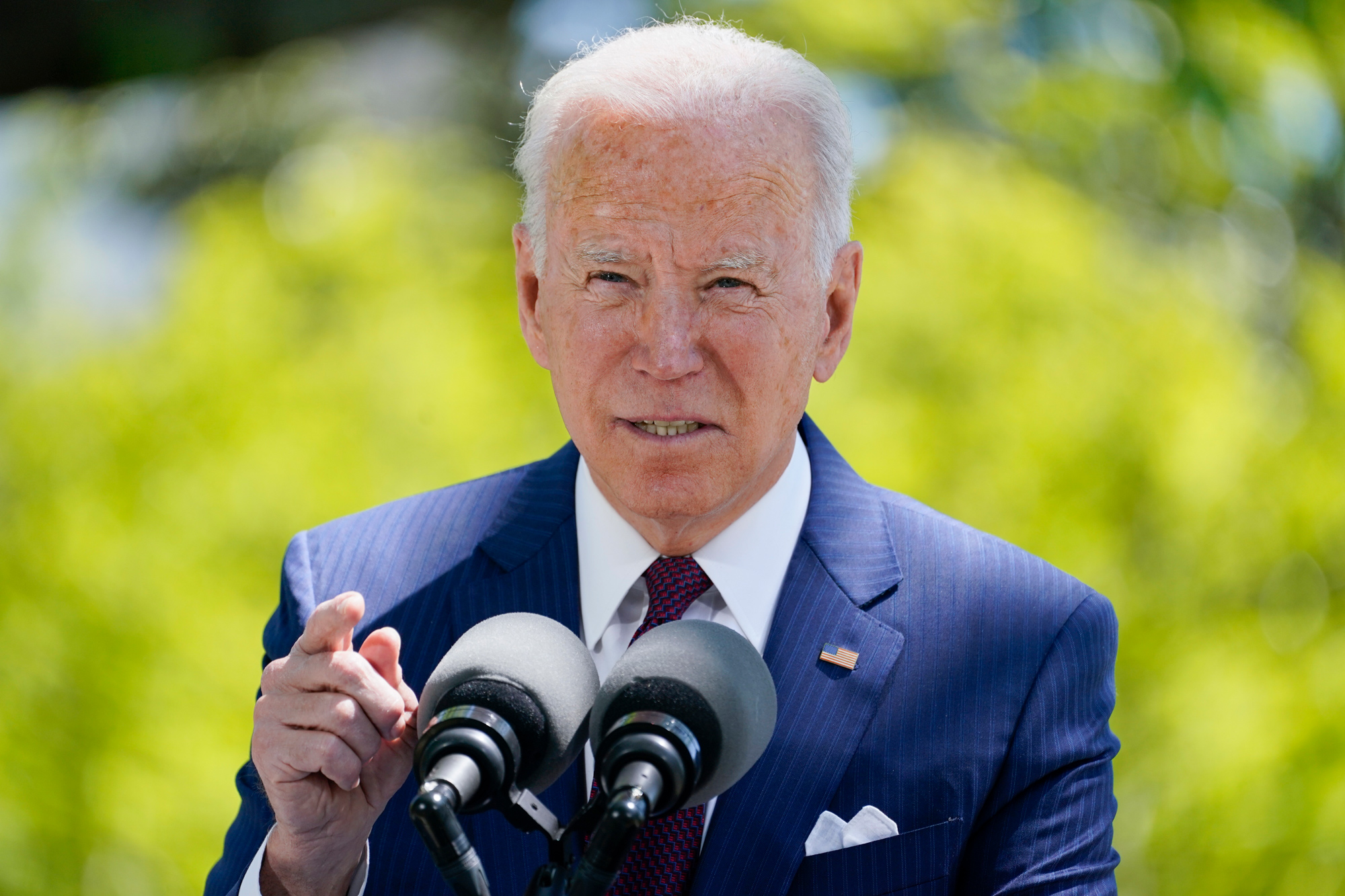Joe Biden’s Policies and Actions on COVID-19: Joe Biden Covid

Joe biden covid – Upon taking office in January 2021, President Joe Biden inherited a COVID-19 pandemic that had already claimed the lives of over 400,000 Americans. In response, Biden implemented a comprehensive strategy to combat the virus, which included increasing testing and vaccination rates, providing economic relief to individuals and businesses, and issuing mask mandates.
Impact of Biden’s Policies
Biden’s policies have had a significant impact on the spread of COVID-19 in the United States. The number of new cases per day has declined significantly since Biden took office, and the death rate has also fallen. Additionally, the economy has begun to recover, and unemployment rates have fallen.
President Biden’s COVID-19 policies have drawn both praise and criticism. While some have lauded his handling of the pandemic, others have argued that his approach has been too cautious. In the meantime, Simone Biles, a renowned gymnast, has amassed a significant net worth.
Her success is a testament to her hard work and dedication. As the Biden administration continues to navigate the challenges of COVID-19, it will be interesting to see how its policies evolve.
Strengths and Weaknesses of Biden’s Approach, Joe biden covid
Biden’s approach to managing the pandemic has been praised by some for its effectiveness in reducing the spread of the virus and mitigating its economic impact. However, others have criticized Biden’s policies, arguing that they have not gone far enough to protect public health or support the economy.
Vaccination Campaign
One of the cornerstones of Biden’s COVID-19 strategy has been a massive vaccination campaign. The Biden administration has set a goal of vaccinating 70% of American adults by July 4, 2021. To achieve this goal, the administration has partnered with states and local governments to expand access to vaccines and make them more convenient to obtain.
President Biden’s handling of the COVID-19 pandemic has been widely praised, but there are still some who criticize his approach. However, one thing that is undeniable is the support that Biden has received from the African American community. In fact, a recent poll found that 80% of African Americans approve of Biden’s job performance.
This is likely due in part to Biden’s strong support for civil rights and his commitment to addressing the needs of the African American community. For example, Biden has taken steps to address the racial wealth gap and to reform the criminal justice system.
He has also appointed several African Americans to key positions in his administration, including Vice President Kamala Harris. Biden’s support for the African American community is not new. He has a long history of working with civil rights leaders and fighting for equality.
As a senator, Biden was a strong supporter of the Voting Rights Act and the Civil Rights Act of 1964. He also worked to pass legislation to increase funding for historically black colleges and universities. Biden’s commitment to the African American community is clear, and it is one of the reasons why he is so popular among African Americans.
Simone Biles’s mom is also a strong supporter of Biden. She has praised Biden for his work on behalf of the African American community and for his commitment to equality. Biles’s mom is just one of many African Americans who are grateful for Biden’s leadership.
Biden’s support for the African American community is one of the reasons why he is so popular among African Americans.
Economic Relief
In addition to his efforts to combat the virus, Biden has also taken steps to provide economic relief to individuals and businesses affected by the pandemic. The Biden administration has passed several pieces of legislation that provide financial assistance to individuals, families, and businesses, including the American Rescue Plan Act of 2021.
Mask Mandates
Biden has also issued mask mandates for federal property and transportation. These mandates have been controversial, with some arguing that they are necessary to protect public health and others arguing that they are an infringement on personal liberty.
Future Challenges
Despite the progress that has been made in combating COVID-19, the Biden administration faces a number of challenges in the months ahead. The virus is still circulating, and new variants are emerging that may be more resistant to vaccines. Additionally, the economy is still recovering from the pandemic, and many people are still struggling to make ends meet.
The Economic Impact of COVID-19 on the United States

The COVID-19 pandemic has had a profound impact on the US economy, leading to widespread job losses, business closures, and disruptions in global supply chains. The economic consequences have been severe and far-reaching, affecting various industries and sectors.
Impact on Employment
One of the most significant economic impacts of COVID-19 has been the loss of jobs. In the early stages of the pandemic, millions of Americans were laid off or furloughed as businesses closed or scaled back operations. The unemployment rate spiked to a record high of 14.7% in April 2020, the highest level since the Great Depression.
While the unemployment rate has gradually declined since then, it remains elevated compared to pre-pandemic levels. As of January 2023, the unemployment rate was 3.4%, still higher than the 3.5% rate recorded in February 2020 before the pandemic.
Impact on GDP
The COVID-19 pandemic also led to a sharp decline in economic growth. In the second quarter of 2020, the US economy contracted by an annualized rate of 31.4%, the largest quarterly decline on record. This was followed by a rebound in the third quarter, but growth has since slowed.
For the full year 2020, the US economy contracted by 3.5%, the largest annual decline since 1946. In 2021, the economy rebounded, growing by 5.7%, but growth is expected to moderate in 2023 to around 2.1%.
Impact on Various Industries
The economic impact of COVID-19 has not been uniform across all industries. Some industries, such as travel, hospitality, and entertainment, have been particularly hard-hit by the pandemic. Other industries, such as technology and healthcare, have been more resilient.
The travel industry has been one of the most affected by the pandemic. In 2020, the number of air travelers in the US declined by 60%, and the hotel occupancy rate fell to 44%, the lowest level since the Great Depression.
The hospitality industry has also been severely impacted by the pandemic. In 2020, the number of restaurant meals served declined by 30%, and the number of hotel room nights sold fell by 40%.
The entertainment industry has also been hit hard by the pandemic. In 2020, the box office revenue in the US declined by 80%, and the number of movie theater admissions fell by 70%.
Effectiveness of Government Policies
The US government has implemented a number of policies to mitigate the economic damage caused by the COVID-19 pandemic. These policies have included fiscal stimulus, monetary easing, and unemployment benefits.
Fiscal stimulus has involved increasing government spending and cutting taxes to boost economic activity. Monetary easing has involved the Federal Reserve lowering interest rates and increasing the money supply to encourage borrowing and investment.
Unemployment benefits have been expanded to provide financial assistance to workers who have lost their jobs due to the pandemic. These policies have helped to cushion the economic blow of the pandemic, but they have also contributed to rising government debt and inflation.
The Social and Cultural Impact of COVID-19 on the United States

The COVID-19 pandemic has had a profound impact on the social and cultural fabric of the United States. The virus has forced people to stay home, avoid social gatherings, and wear masks in public. These measures have led to a significant decline in social interactions and have had a negative impact on mental health, education, and the economy.
Mental Health
The COVID-19 pandemic has had a significant impact on mental health in the United States. A study by the Kaiser Family Foundation found that 45% of Americans reported experiencing anxiety or depression during the pandemic. The pandemic has also led to an increase in substance abuse and suicide. In 2020, the number of overdose deaths in the United States increased by 30%.
Education
The COVID-19 pandemic has also had a significant impact on education in the United States. Schools were closed for much of the 2020-2021 school year, and many students are still struggling to catch up. The pandemic has also exacerbated existing inequalities in education. Students from low-income families are more likely to have fallen behind during the pandemic than students from wealthy families.
Social Interactions
The COVID-19 pandemic has also had a significant impact on social interactions in the United States. People are spending less time with friends and family, and many are feeling isolated and lonely. The pandemic has also led to an increase in social unrest and political polarization.
Long-Term Effects
The long-term effects of the COVID-19 pandemic on American society are still unknown. However, it is clear that the pandemic has had a profound impact on the social and cultural fabric of the United States. The pandemic has led to an increase in mental health problems, social isolation, and economic inequality. It is likely that these effects will continue to be felt for years to come.